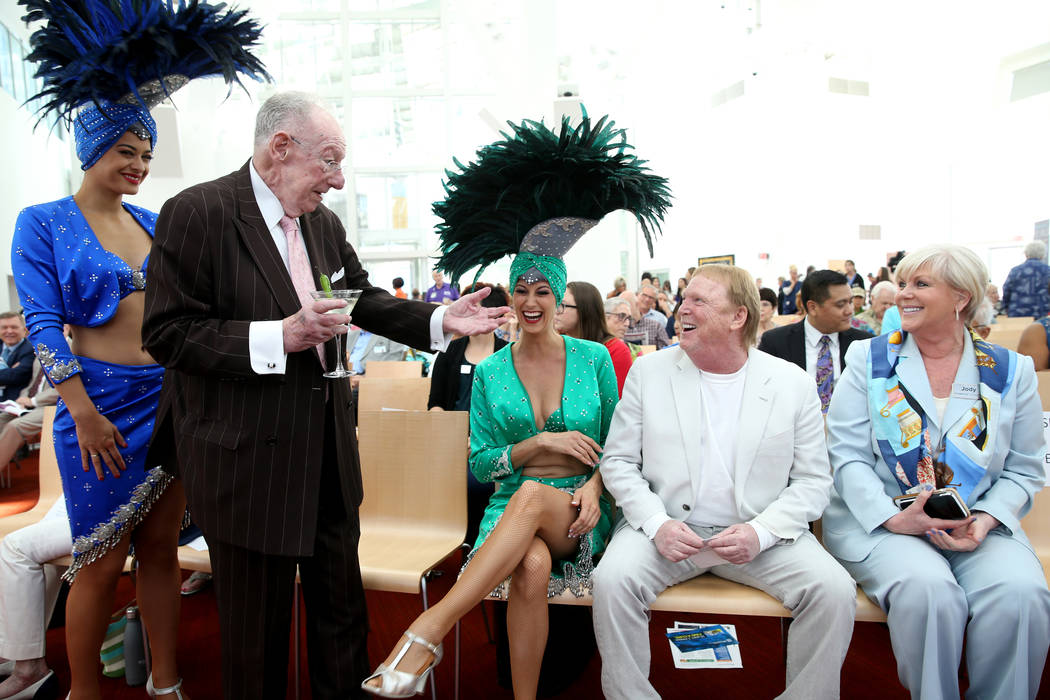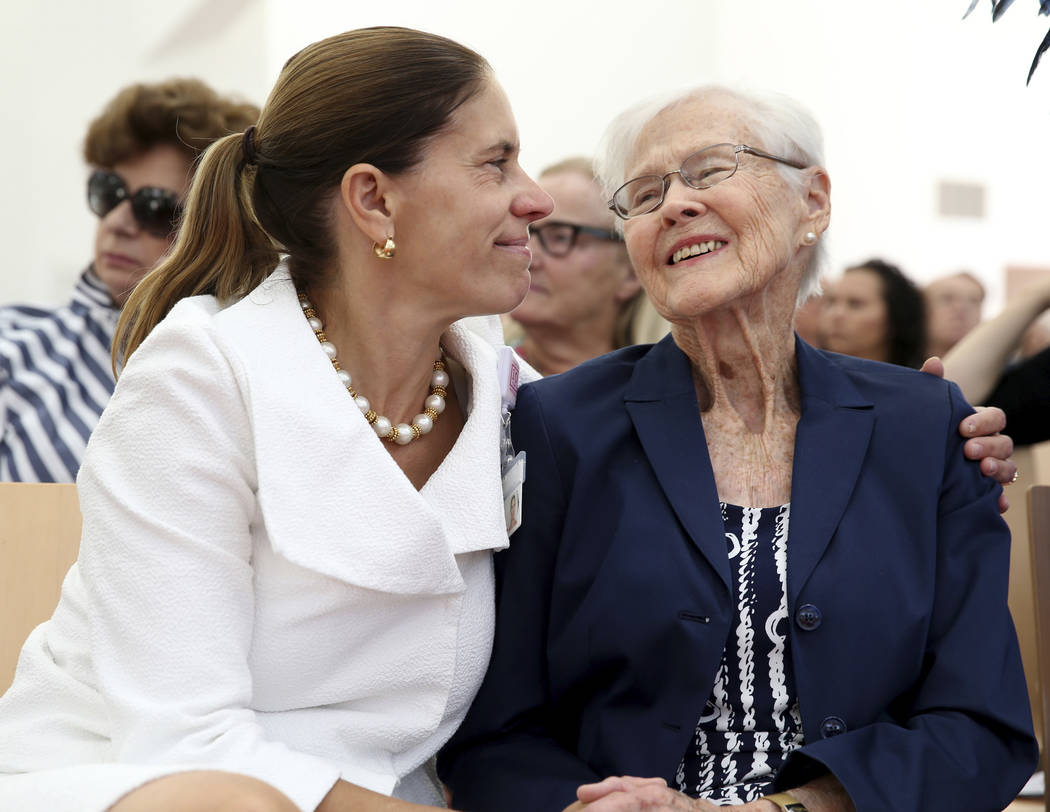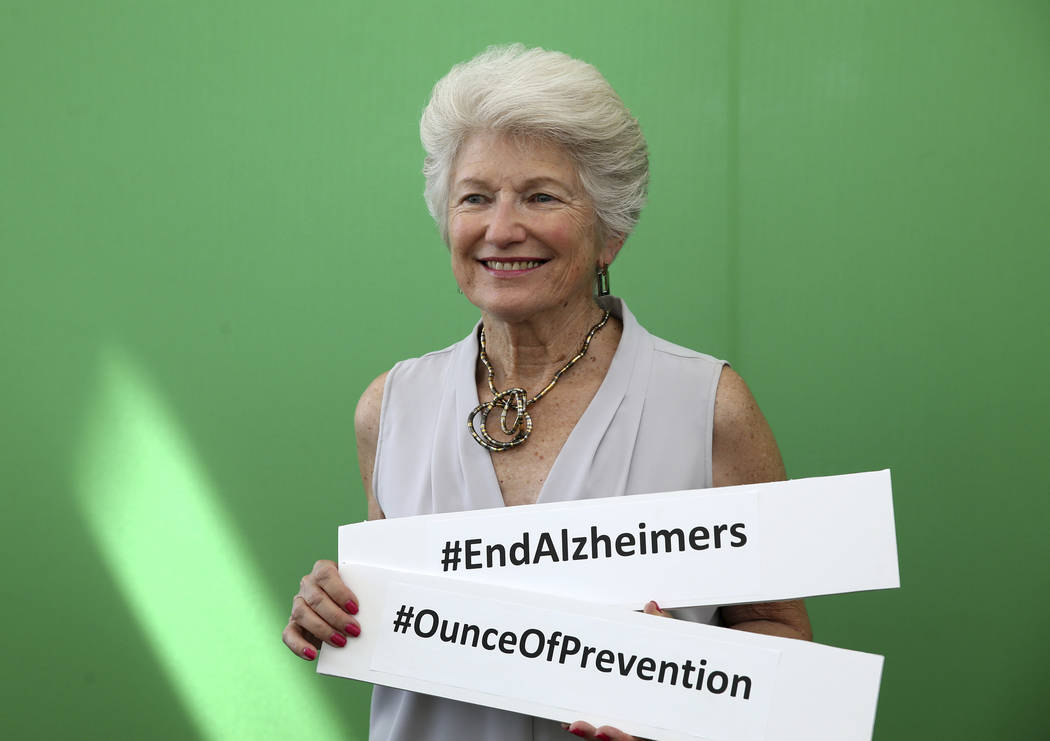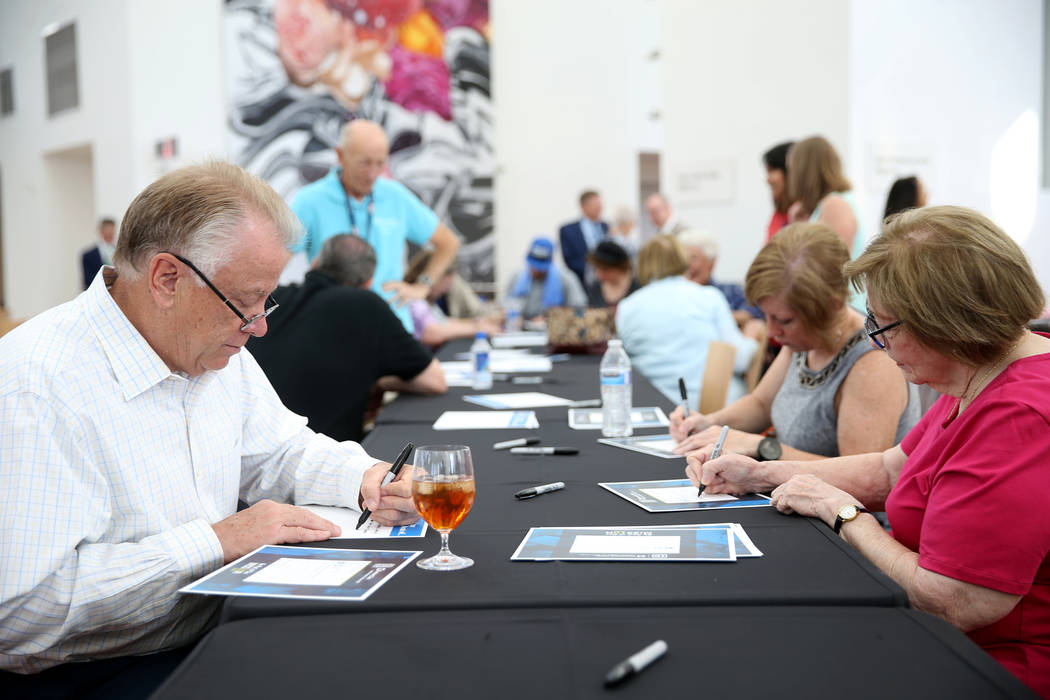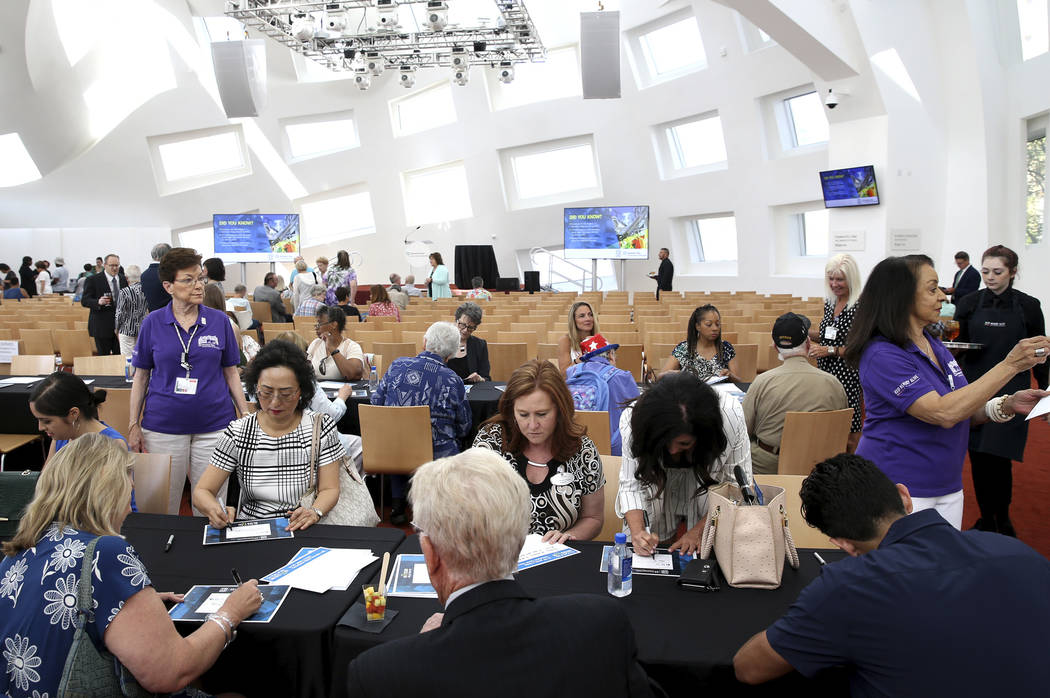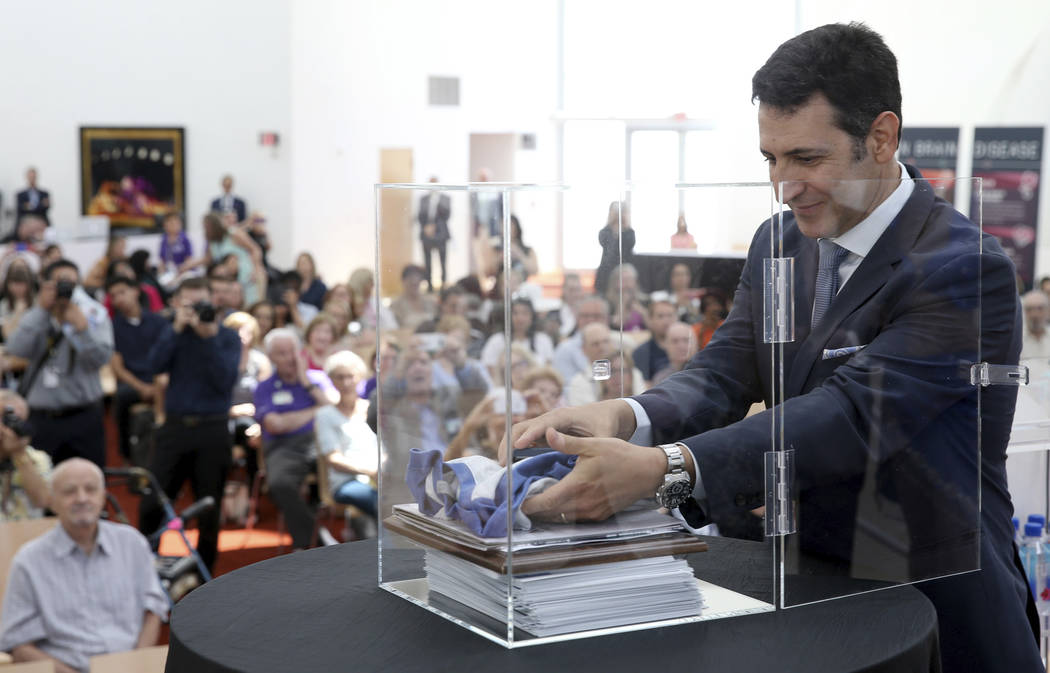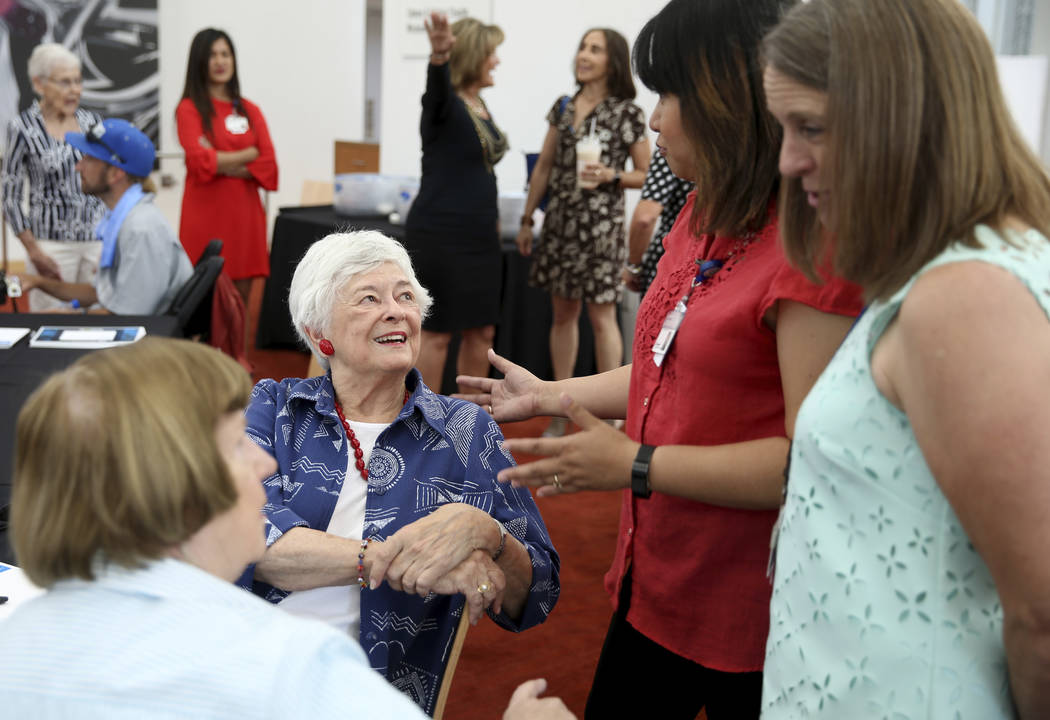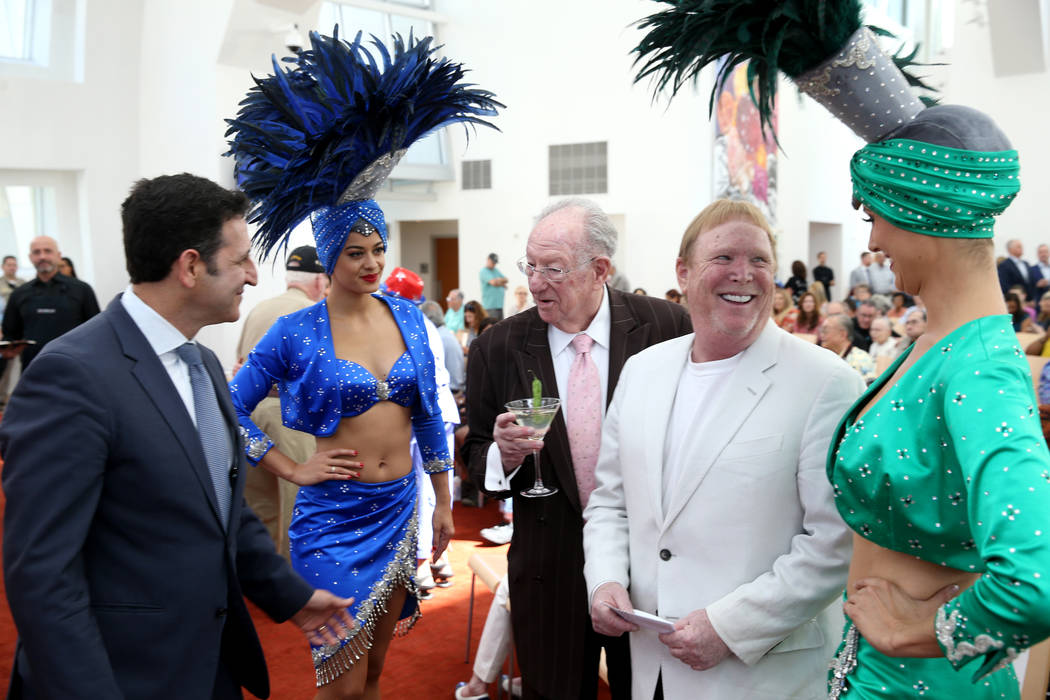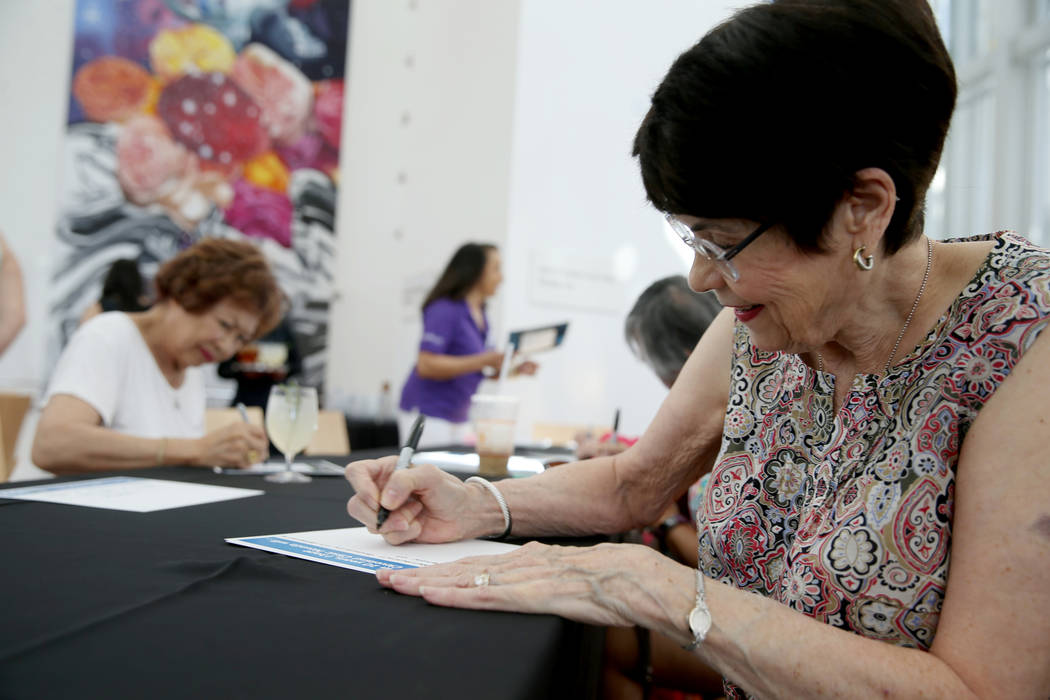Las Vegas community celebrates 10 years of Ruvo brain center
After volunteering at the Cleveland Clinic Lou Ruvo Center for Brain Health in Las Vegas since it opened its doors to patients 10 years ago this week, there was no way Jean Georges was going to miss the center’s celebration of the milestone on Thursday.
Georges came to the Lou Ruvo Center in 2009 with her husband, Leonard, who had been diagnosed with Alzheimer’s disease. In her time as a caregiver to her husband before his death in 2011 and her 10 years as a volunteer, she said she has seen the center grow in many ways.
But at Thursday’s gathering of patients, donors and community leaders in the center’s distinctive multifaceted building, she said throughout that time the center also has maintained its focus on the patients and their caregivers.
“We don’t just recognize the disease the patient has, but we actually recognize the patient the disease has,” Georges said. “This is a human being.”
The Lou Ruvo center was opened 10 years ago by Las Vegas business executive Larry Ruvo to research and develop treatments for neurodegenerative brain diseases such as Alzheimer’s, Parkinson’s, dementia and multiple sclerosis, or MS.
Dr. Le Hua, the director of the Mellen Program for MS, said the greatest accomplishment in her six years at the center has been increasing involvement in clinical studies that develop new drugs and other treatments for the disease. Through these trials, Hua said, patients are able to “contribute to the advancement of their own care.”
Ten years ago, Hua said there were five drugs on the market to treat MS. She said that since the Lou Ruvo center opened, 10 new drugs have been approved to treat the disease, including two developed at the Las Vegas institution.
“We truly believe in individualized care and individualized treatment,” Hua said, “which means that the more options we have, the better we can tailor treatments to the patients.”
The center has also pioneered studies in preventative care for neurodegenerative diseases in the last 10 years, center director Marwan Sabbagh said. He said the center has conducted four clinical trials in prevention, using methods such as genetic risk analysis and brain scans to identify those at greater risk of developing these diseases, increasing the possibility that doctors could intervene before the disease can form.
Looking ahead to the next 10 years, Sabbagh said he hopes Alzheimer’s can be transformed from a terminal to a chronic disease, and that a blood test will be developed to diagnose Alzheimer’s. But he said the center’s core mission will remain giving families and caregivers as much care as the individual suffering from the disease, which he said is still considered an “out-of-the-box idea.”
“These are not diseases of the individual — these are diseases of the family,” Sabbagh said. “We want to have patients and their families supported at all times.”
Contact Amanda Bradford a abradford@reviewjournal.com or 702-383-0279. Follow @amandabrad_uc on Twitter.



